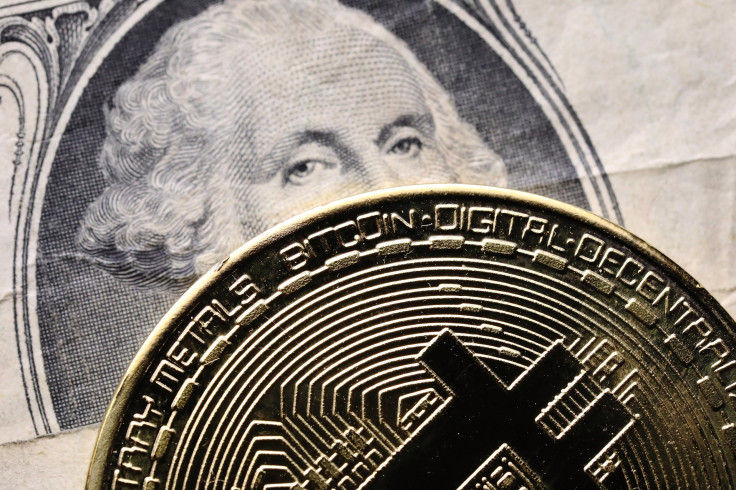Facebook Won't Launch Its Cryptocurrency Wallet In Its Biggest Market

Facebook (NASDAQ:FB) recently introduced Libra, a cryptocurrency it developed with a consortium of payment service and tech companies. It also launched Calibra, a digital wallet for making payments with Libra, and the service will probably be integrated into Facebook's family of apps -- which include Messenger, WhatsApp, and Instagram.
Facebook declared that Libra could solve payment issues for the 1.7 billion people who still didn't have bank accounts worldwide, and the transfers would be faster and cheaper than bank-to-bank transfers. In other words, Facebook wants to create a global digital currency, and its adoption could support the expansion of its e-commerce efforts -- which already include shoppable posts and in-app checkouts for Instagram, integrated payments in Messenger and WhatsApp, and its Craigslist-like Marketplace.
However, roadblocks for Facebook's global ambitions have already appeared. Facebook won't launch Calibra in U.S.-sanctioned countries, countries where Facebook doesn't have a presence, and countries that ban or regulate cryptocurrencies.
That last restriction means Facebook won't launch Calibra in India -- which recently proposed 10-year jail sentences for people who "mine, hold, sell, transfer, dispose, issue, or deal in cryptocurrencies." Let's discuss why getting locked out of India's crypto market represents a significant setback for Facebook's long-term plans for the country.
Why India matters to Facebook
India, which is set to overtake China as the world's most populous country within the next decade, is one of Facebook's fastest-growing markets in terms of daily active users (DAUs). During last quarter's conference call, CFO Dave Wehner said Facebook's DAUs rose 8% annually to 1.56 billion, "led by growth in India, Indonesia, and the Philippines." Jefferies estimates that India is Facebook's largest market, with 310 million users, and that figure could surge to 440 million by 2023.
India currently has a population of nearly 1.4 billion and a low internet penetration rate of just over 40%. Between 2017 and 2022, the percentage of Indians using smartphones could grow from 27% to 60%, according to Cisco.
That's why Facebook -- which faces peaking growth in many of its developed markets -- is eager to court Indian users with "lite" Facebook apps, which use less data, and new features for WhatsApp, which also ranks India as its top market with over 200 million users.
India also has the world's second largest unbanked population after China, with the latest World Bank numbers indicating that 191 million Indians over age 15 still don't have bank accounts. Facebook sees an overlap between those unbanked people and its mobile app users -- that's why it started testing out WhatsApp Pay, a peer-to-peer payments feature for WhatsApp, for Indian users in early 2018.
However, WhatsApp Pay still trails far behind Paytm, which has over 230 million users, in the Indian market, and it still faces stiff competition from rivals such as Alphabet's Google Pay, Flipkart's PhonePe, and the government's own BHIM app. Therefore, integrating cryptocurrency purchases and payments into its apps -- as Square did with its Cash App -- could help Facebook differentiate itself from the competition.
But those plans will stay on the back burner... for now
Facebook CEO Mark Zuckerberg has held numerous talks with Prime Minister Narendra Modi to discuss his plans for the Indian market, but regulators are still wary of the tech giant's long-term ambitions.
Three years ago, Indian regulators banned Facebook's "Free Basics," which allowed carriers to offer data-free versions of its core apps, on grounds that it violated net neutrality and marginalized competitors. The government's promotion of BHIM, a payment app linked to banks, also aims to unite the fragmented payments market under a single, easily regulated umbrella that could deter illegal transfers and tax evasion.
That's why Indian regulators aren't eager to embrace cryptocurrencies, which could let payments fly under the radar or across national borders. Facebook might eventually launch Calibra in India with significant compromises, but that idea, as lucrative as it might be, will stay on the back burner for now.
Suzanne Frey, an executive at Alphabet, is a member of The Motley Fool's board of directors. Randi Zuckerberg, a former director of market development and spokeswoman for Facebook and sister to its CEO, Mark Zuckerberg, is a member of The Motley Fool's board of directors. Leo Sun owns shares of Cisco Systems, Facebook, and Square. The Motley Fool owns shares of and recommends Alphabet (A shares), Alphabet (C shares), Facebook, and Square. The Motley Fool has a disclosure policy.





















